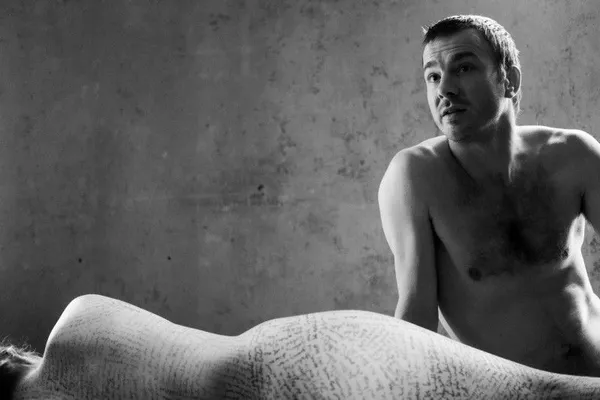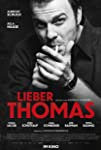Eye For Film >> Movies >> Dear Thomas (2021) Film Review
Dear Thomas
Reviewed by: Amber Wilkinson

A lack of prior knowledge of the life and work of English-born (but East German raised) poet and film director Thomas Brasch is not a hindrance to enjoying this stylish monochrome consideration of his life. In fact, it might actually give you an advantage over Brasch scholars who may be looking for a more straightforward biopic of the rebellious writer than that offered by director Andreas Kleinert and writer Thomas Wendrich, who go in search of emotional truths rather than daily chapter and verse. The clue is in the title, with the word "Dear (Lieber)" indicating that this is a love letter to the artist - and one which will favour his viewpoint over that of others, particularly when it comes to women.
Kleinert's film does run chronologically, but it offers hops, skips and jumps through various periods from Brasch's childhood through to his early death at 56, punctuated by snippets of one of his poem Lied/Stille in which opposing thoughts are connected by the word "but", for example: "I don't want to lose what I have, but I don't want to stay where I am". The inherent conflict in sentences like this is mirrored by a life that was full of contradictions and railing against authority, including at a domestic level, where he found himself locking horns with his staunch Socialist Union Party man father (Jörg Schüttauf). His restlessness extended to his relationships, using women - who, if this film is to be believed, were often happy to share him - as muses more than much else, with only Katharina Thalbach (Jella Haase) making a lasting impression on either him or us.

Despite the 150-minute runtime, Kleinert knows how to create an economical image, whether it's summing up the brutality of a boarding school by with the sight of a child eating glass or encapsulating the muse idea by having Thomas (played in adulthood by Albrecht Shuch) write all over a woman's naked body. He also uses fantasy sequences, which arrive with little warning, to explore Brasch's obsession with a series of murders committed by Karl Brunke and later, less successfully, to indicate the fracturing of his drug-addled mind. The camera loves Schuch and he brings an almost Marlon Brando-esque feel to the role, charm glinting through so that even though we know nobody loves him more than he loves himself, we can also see the attraction of this kind of self-confidence. He thoroughly deserved the acting award at Tallinn Black Nights, where the film also took home the Official Competition gong.
Like Kirill Serebrennikov's Leto, this is as much an evocation of a period as a single person, and there is an immersive quality to the parties we see Brasch powering his way through, although whether we need to see quite so much of them is debatable. Pieces of specific history are missing - such as Brasch's directing of Tony Curtis in 1988 film The Passenger – Welcome to Germany, here alluded to by a snippet of John Barry's The Persuaders theme, A TV crime show in which Curtis also starred as something of a ladies man.
If it loses something in terms of definitive events, it gains a more poetic fluidity from the approach. There's a constant sense of transition without destination as we see Brasch move from freedom to prison, from kid to beatnik, East to West, and from literary ascendancy to addiction. His rebelliousness extends to his attitude to his own career, as he grapples with turning his pen on his own life story - something that it's a shame doesn't get more psychologically explored. Never less than visually appealing, you might find it light in detail in places, but - and with Brasch it seems there was always a but - Kleinert's intriguing approach will almost certainly make you want to find out more about the writer's life and career.
Reviewed on: 30 Nov 2021
















